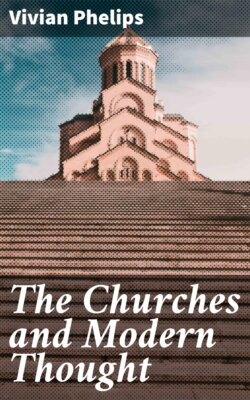Читать книгу The Churches and Modern Thought - Vivian Phelips - Страница 18
На сайте Литреса книга снята с продажи.
WHY HAVE MIRACLES CEASED?
ОглавлениеAn obvious objection to miracles is the one often propounded by an inquiring child, “Why do we no longer have miracles?” The rationalist’s reply, of course, is that, so soon as nature’s laws were better understood, trustworthy evidence was demanded and miracles ceased. Paley tries to parry the question by saying: “To expect, concerning a miracle, that it should succeed upon repetition is to expect that which would make it cease to be a miracle; which is contrary to its nature as such, and would totally destroy the use and purpose for which it was wrought.”2 But, as Cotter Morison remarks:3 “Assuming that a miracle reveals the presence of a supernatural power, why should its repetition destroy its miraculous character? Above all, why should it destroy its use? If miracles are intended to convert the stiff-necked and hard-of-heart, what more likely way of bringing them to submission than the repetition of miracles? And, according to Scripture, this was precisely the way in which Pharaoh, king of Egypt, was humbled. He resisted the miracles wrought by Moses and Aaron with stubbornness all through the first nine plagues; but the universal slaying of the first-born broke even his spirit. … It may suit Paley to say that repetition of miracles would destroy their use; but he must be a luke-warm theologian who does not at times wish from the depth of his heart that an authentic miracle could be produced. Yet it is at this momentous crisis in the religious affairs of the world, when the enemy is carrying one position after another, and has all but penetrated to the citadel of belief, that no miracles occur, that no miracles are claimed, except, indeed, of the compromising species made at Lourdes. … When no one doubted the possibility of the frequency of miracles they abounded, we are told—that is, when, by reason of their number and the ready credit accorded to them, their effect was the least startling, then they were lavished on a believing world. Now, when they are denied and insulted as the figments of a barbarous age; when the faith they might support is in such jeopardy as it never was before; when a tithe of the wonders wasted in the deserts of Sinai and the ‘parts beyond Jordan’ would shake the nations with astonishment and surprise—when, in short, the least expenditure of miracle would produce the maximum of result, then miracles mysteriously cease. This fact, which is beyond contest, has borne fruit, and will yet bear more.”
Some pious Christians, feeling the force of arguments such as these, contend that Christ’s promises to believers do indeed apply to all time; that supernatural manifestations have not ceased; and that, when there is no exercise of the supernatural in the visible Church of Christendom, it is owing to lack of faith. “Can you give me,” asks Father Ignatius,4 “one single text in Holy Scripture to prove that miracles and visions are to cease with the apostles? When we hear, in all directions, of the supernatural being manifested, we need not wonder, for we are living in a day which demands supernatural manifestations more than any other epoch in the Christian Church.”
